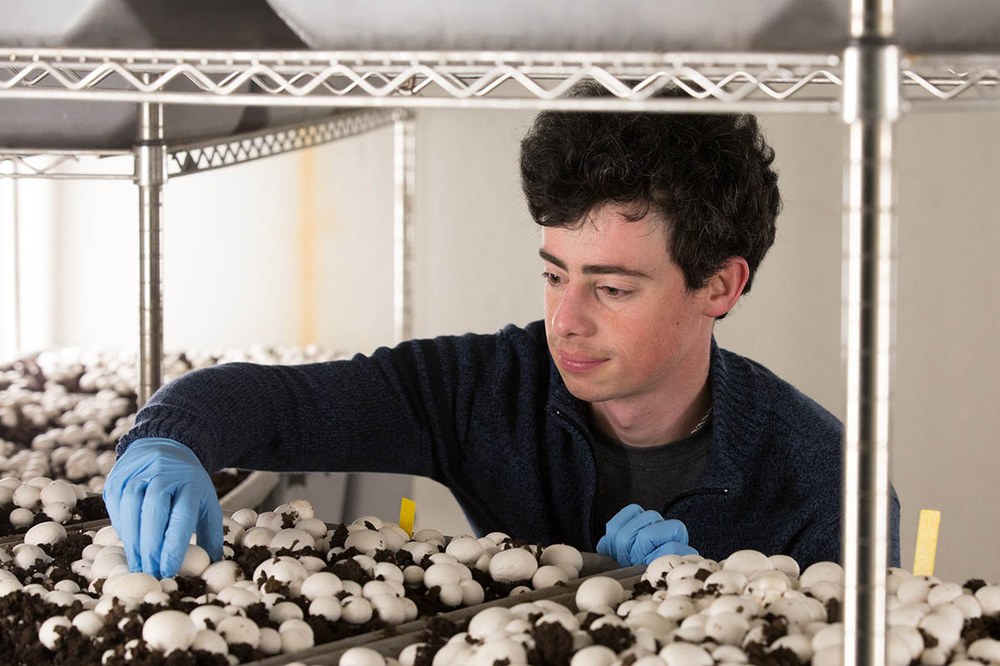Research focuses on improving commercial mushroom production through disease control and studying and manipulating microbial ecology and population dynamics during the composting process. The Penn State Mushroom Research Center (MRC) is one of the few research facilities in the world dedicated to mushroom research.

Mushroom Science and Technology
Production research efforts have been directed toward more efficient mushroom production in terms of increased yields and cost-efficient production, within an environment of escalating costs. In 2006, U.S. mushroom farmers averaged yields of 5.92 lb of mushrooms per square foot of production area, which compares with a 2.23 lb yield in 1969, a 265% increase in a 38-year period. Higher yields are the result of adoption of production technologies and increased efficiencies by the growers. Penn State's research programs played a major role in this achievement. No continuous production research effort has been made at any Agricultural Experiment Station in the country other than The Pennsylvania State University.
Mushroom production was more than a $880 million business in the U.S. in 2006, and Penn State researchers are trying to maintain the industry's viability in the face of increasing competition from imported mushrooms. The percentage of U.S.-produced mushrooms sold on the fresh market has increase dramatically, accounting for 84% of the total production last year. A strong fresh market is now of paramount importance to the prosperity of the U.S. mushroom industry. Three key factors in increasing demand and sale of fresh mushrooms are to improve mushroom quality and shelf life, and to enhance nutritional properties.
The emphasis of Penn State's current research program is directed toward basic and applied technologies of factors controlling mushroom quality. Investigations of cultural practices, reuse of spent mushroom compost, odor reduction, reducing losses due to green mold and other diseases, employing transgenic breeding techniques, identifying and enhancing unique nutritional and medicinal properties and developing methods for producing specialty mushrooms are all part of the Penn State program. A strong adaptive research program contributes to the industry's ability to solve problems on their farms.
Researchers in the Department of Plant Pathology and Environmental Microbiology working in the area of Mushroom Science and Technology.
Mushroom Industry/Penn State Strategic Planning Event meeting reports.
The Department of Plant Pathology and Environmental Microbiology's Mushroom Research Center provides unique facilities for conducting mushroom research.
The Mushroom Spawn Laboratory contains a culture collection of the cultivated mushroom, Agaricus bisporus.

